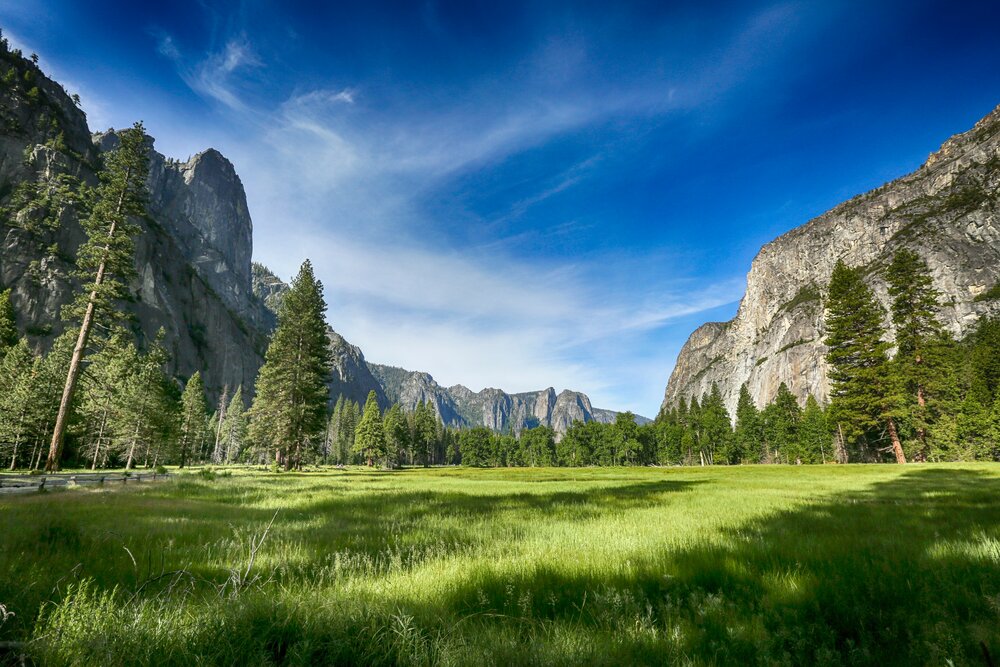Scattering Ashes in a National Park
National Parks are among some of the most beautiful spaces across the country. If your loved one enjoyed scenic vistas, beautiful landscapes, or a specific park in particular, scattering their ashes in a National Park may be a good way to honor their memory. All 63 National Parks allow for the scattering of ashes, with some limitations and restrictions. Below, we will discuss some of the important aspects to consider.
National Parks vs the National Park System
There are 63 National Parks in America. However, the National Park system encompasses 425 sites in total. Not all of these allow for ashes to be scattered. These additional sites may include historic battlefields, national monuments, nature reserves, military parks, and more. National Parks include Yosemite, Yellowstone, Shenandoah, and many more. The vast majority of the parks are in the western half of the US, with many residing in California, Alaska, and Utah. For more info on the National Park Service, visit their website here.
Scattering Ashes in a National Park
There is no federal law preventing you from scattering the ashes of a loved one in a National Park. However, there may be state laws or park policies that govern how, where, or when you may release ashes. Generally, most National Parks will require a “special use” permit. There will likely be paperwork involved as well. Processing may take 30 days or more to complete. Laws and permits may require you to be in specific parts of the park, and well away from water sources. Burial of cremains is also not permitted in National Parks.
Carry Your Permit
When you are at the park to scatter the ashes, be sure to bring a printed copy of your permit with you. If a park ranger sees your ceremony, you will need your permit. Otherwise, you may be subject to a fine.
Planning a Ceremony
You may want to include a short ceremony along with the scattering of cremains. While you won’t be able to do anything large-scale, consider preparing a few words, singing a song, etc. It should be simple, short, and intimate.
Consider Weather Conditions
You should consider weather conditions when planning your scattering. It is not recommended to scatter ashes in the rain. Parks may also close for snow, floods, or certain seasons. As you will be planning the trip ahead of time, you may not be able to directly predict the weather conditions. If you need to make changes to the event date, contact the park directly.
“Book of Memories” at National Parks
Many National Parks have a “Book of Memories,” which allows loved ones to record the names of those whose remains are scattered at the park. It is a way to memorialize and honor your loved one within the park’s records. When applying for your permit, be sure to inquire about this.
Leave No Trace in National Parks
Leave No Trace is a set of principles for anyone enjoying the outdoors, especially backcountry locales like National Parks. To ensure that your memorial scattering is done with as little impact on the environment, you should look toward these principles. In addition to not soiling water sources, as mentioned above, this includes not trailblazing. It also includes keeping your memorial group small. Large groups can cause a larger environmental impact on the park and the wildlife within. Be sure not to leave trash behind. Do not bring flowers or other plants to the park, as this can cause invasive species.
For over 50 years, Matthew Funeral Home has been serving the Staten Island community. We can help with almost every aspect of your loved one’s memorial service. Our family is here to serve yours, every step of the way.
 (718) 761-5544 |
(718) 761-5544 |  matthewfh@matthewfuneralhome.com |
matthewfh@matthewfuneralhome.com |  2508 Victory Boulevard, Staten Island, NY 10314
2508 Victory Boulevard, Staten Island, NY 10314








 matthewfh@matthewfuneralhome.com
matthewfh@matthewfuneralhome.com
Comments